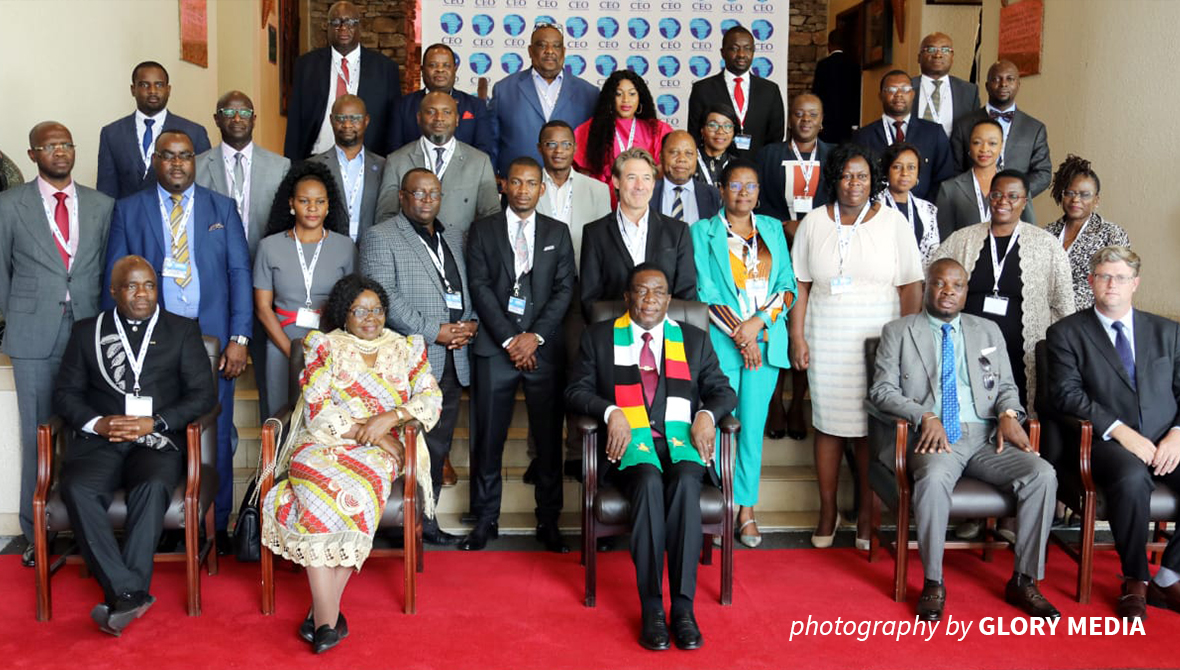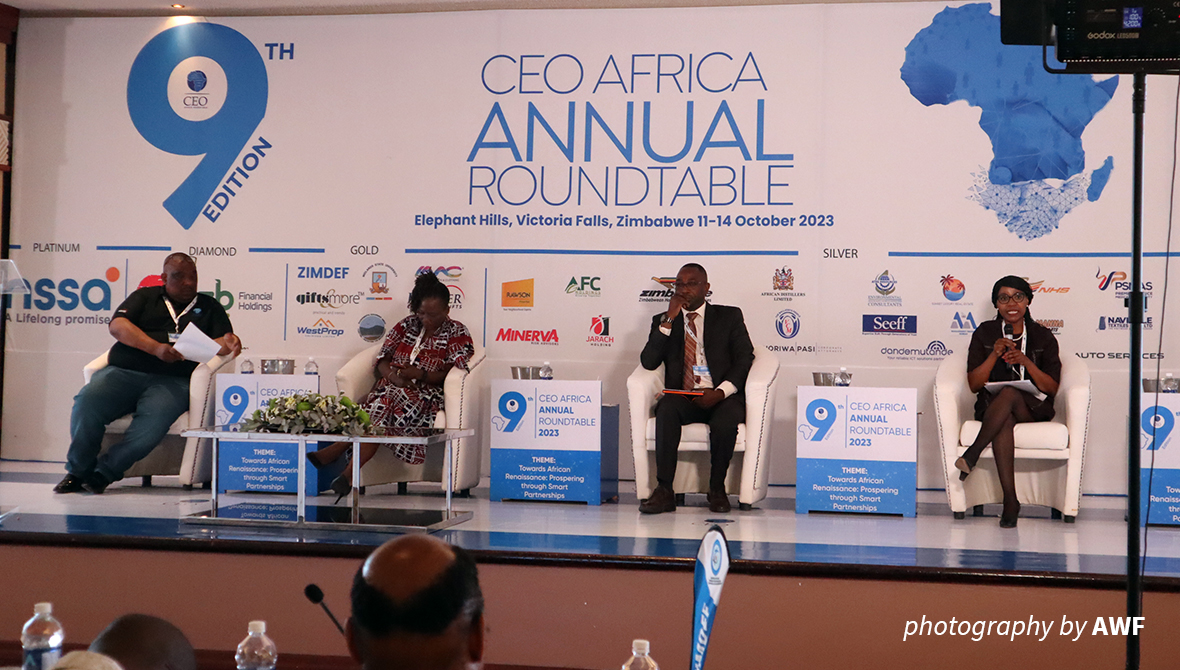Insights from the CEO Africa Annual Roundtable 2023: Building Credible Environmental Strategies

About a year ago, at the 27th Conference of Parties to the United Nations Framework Convention on Climate Change (COP 27) in Sharm El Sheikh, Egypt, 56 Chief Executive Officers (CEOs) of African companies earning at least $140 billion in revenue and employing over 700,000 employees made a groundbreaking commitment to combat climate change. This monumental pledge underscored CEOs' immense influence in advocating for conservation policies, supporting environmental organizations, establishing sustainability goals, and investing in renewable energies and other sustainable technologies. As corporate leaders across Africa embrace the principles of Environmental, Social, and Governance (ESG), Zimbabwe is navigating the delicate balance between achieving ESG objectives and fiscal targets. In this regard, the Zimbabwe Biodiversity Economy Report is emerging as a pivotal instrument in this endeavor, offering solutions that extend beyond the nation's borders.
At the recently ended 9th edition of the CEO Africa Annual Roundtable 2023 on 11-14 October, high-level CEOs from Zimbabwe indulged in discussions around building credible ESG strategies with clear linkages to climate-related issues. AWF’s Zimbabwe Country Director, Olivia Mufute, who was one of the panelists at the CEO Africa Annual Roundtable, shares her reflections and key takeaways from the engagement that was graced by the President of Zimbabwe, H.E. Emmerson Mnangagwa.
According to your understanding, what are ESG strategies, and how can CEOs ensure they are credible?
An ESG strategy is disclosing data to transparently show how an organization performs across three key areas: environmental sustainability, social sustainability, and corporate governance. Investors are using ESG as the screening method for choosing companies to invest in and understanding their portfolios. As a result, more and more companies are implementing their ESG reporting strategies, but unfortunately, not many companies in Zimbabwe are compliant. Environmental, social, and governance (ESG) factors are fast becoming key value drivers in investment decisions. Organizations of all sizes are beginning to feel pressured to start planning their ESG reporting strategy.
To build ESG Strategies, companies need to adopt the right tools and practices that support risk management and help to drive positive impact. ESG-related risks, such as extreme weather events and child labor in supply chains, are some of the biggest threats companies face. Companies and organizations need to be more proactive in implementing ESG strategies to identify, mitigate, and address vulnerabilities before they become a problem, as this reduces operating costs such as energy, water, and waste costs in the short to long term.

What are your key takeaways from the recently concluded CEO Roundtable?
The panel discussion on ESGs at the 9th Edition of the CEO Africa Annual Roundtable was very successful, and there was a lot of positive feedback from the attendees. The topic focused on “Building Credible ESG Strategies.” The four Panelists shared their experiences and covered the major components of ESGs, namely their importance to business, environment, social, and governance frameworks, clearly outlined during the discussion. I covered several environmental issues emphasizing that natural capital and its ecosystem services underpin most productive economic activities in our economies, the problems related to biodiversity loss, and opportunities for the private sector. Tawanda Muzamwese, a Consultant from Toxiconsol, covered issues on the importance of ESGs and sustainability reporting for private sector companies. Fidelia Gandiya, the Sustainability Manager from Zimbabwe’s largest cellular network service provider, covered the Governance issues under ESG implementation and reporting, while Patrick Sikana, the Country Director from CARE International Zimbabwe, covered all the major social issues for businesses to consider.
It was great that issues of ESG Reporting Standards and Frameworks were highlighted, including Sustainability Assurance. One of the key takeaways is that most of the companies in Zimbabwe lack adequate information on ESGs. Very few large corporations like Econet have embraced and fully adopted ESGs. The listed companies and the small and medium enterprises that constitute most businesses in the country need to adopt ESG strategies. There is a need for follow-up activities to share more information to companies that have implemented ESGs. There is also a need for a more detailed session where the panelists can do a deep dive and invite other relevant technical experts in the subject area. There is also a lot of interest in business opportunities from the Zimbabwe Biodiversity Economy Study.
In your view, what should African CEOs do to ensure conservation is embedded in various sectors of the economy?
Pressing issues in conservation include climate change, air pollution, water management, waste management, biodiversity, ecosystem conservation, and resource efficiency management. These environmental issues are interconnected and have wide-ranging implications for sustainability and the planet's long-term well-being. Incorporating environmental considerations into business practices and investment decisions is vital for addressing these issues and working towards a more sustainable future.
During the ESG session, I shared highlights from the Zimbabwe Biodiversity Economy Report and Strategies for Businesses to consider going forward. Some strategies include embracing opportunities in the biodiversity economy and adopting natural capital accounting to inform our businesses of the opportunities and risks that our businesses are exposed to. Above all, we cannot effectively protect, manage, and leverage what we have not measured.